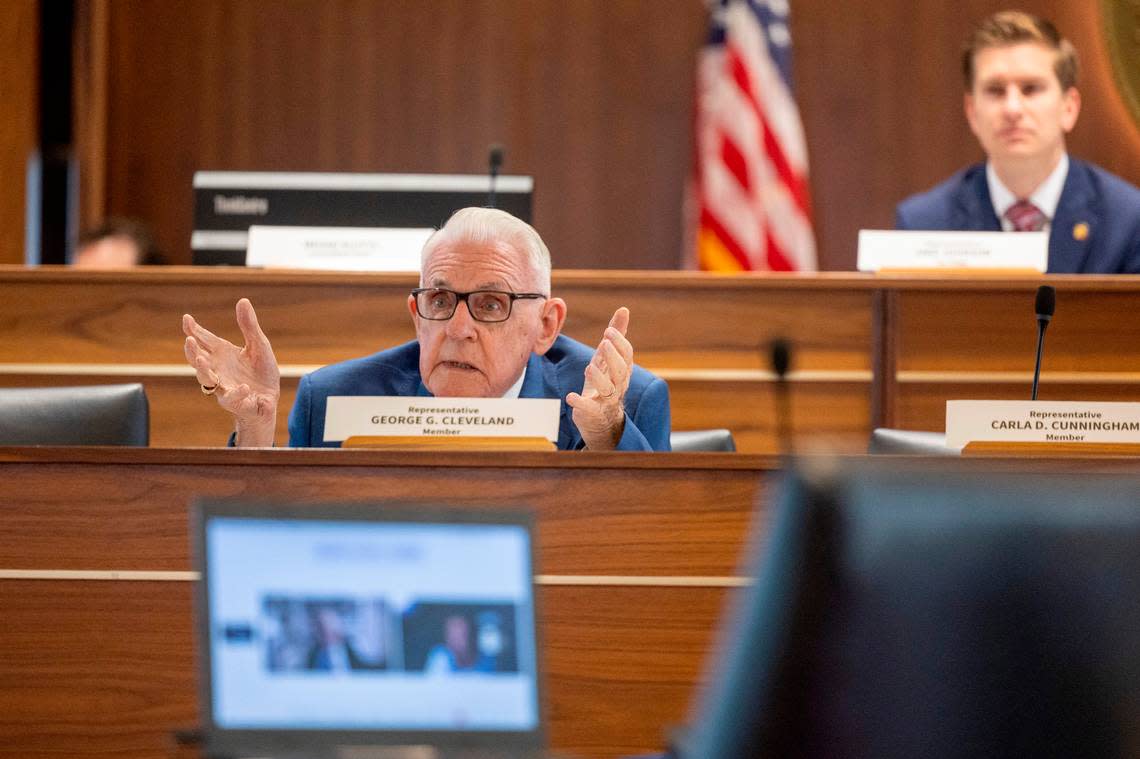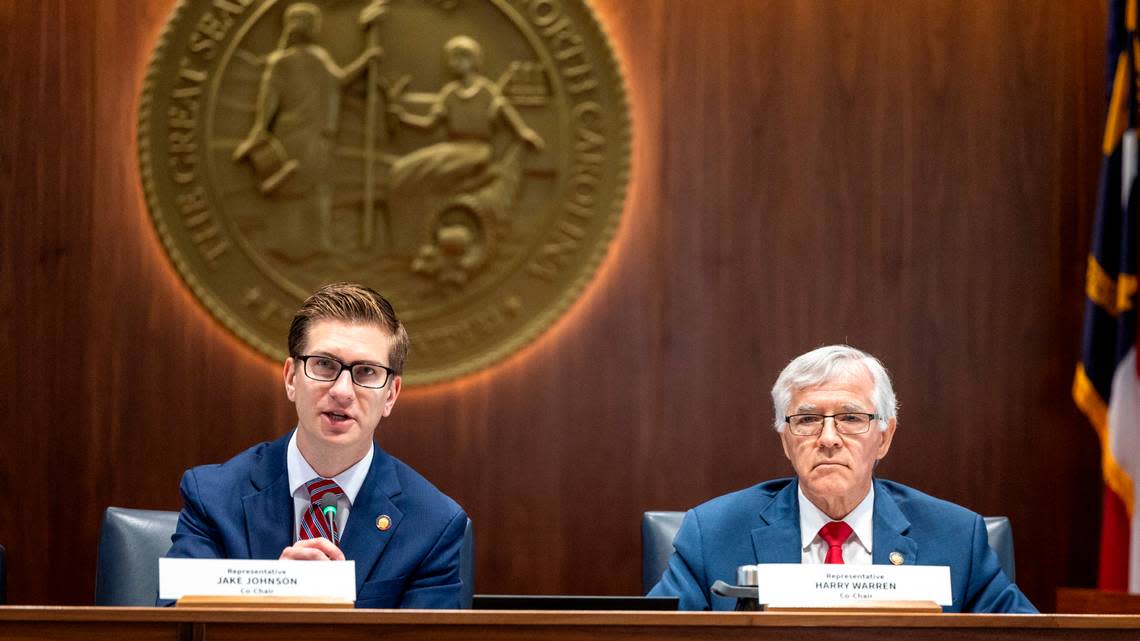Republican lawmakers grill NC election officials on Kennedy and West ballot access
State lawmakers questioned top North Carolina election officials Tuesday over their handling of several third parties who sought ballot access for presidential candidates this year.
At a House Oversight Committee hearing lasting four hours, Republican legislators criticized the board’s initial denial of several third-party petitions and at times questioned the influence of political groups which they said sought to eliminate moderate and progressive challengers to the Democratic presidential candidate.
“I think this entire process is somewhat jaded and unduly influenced,” Rep. Allen Chesser, a Nash County Republican, said while questioning Board Chair Alan Hirsch, a Democrat.
“You are very much aware of who stands to gain and who stands to lose by these parties moving forward.”
After initially denying access to the conservative Constitution Party and Robert F. Kennedy Jr.’s “We the People” party in June, the State Board of Elections reversed its decision earlier this month, allowing the two parties to place their candidates on the November ballot.
However, the board upheld its decision to deny access to the progressive “Justice For All” party, led by left-wing academic Cornel West. Voting 3-2, the board’s Democratic majority cited issues with misleading petition gatherers and an ongoing criminal investigation into potential fraud in JFA’s signature collection process.
Hirsch defended the board’s decision Tuesday, telling committee members: “It is our obligation to decide these issues based on the law. And I understand the political currents here — I’m not naive to that. However, this decision was based entirely on the facts.”

The board has faced a wave of criticism from Republicans and independents over its decision and now faces a lawsuit from members of the Justice For All Party, who claim the board violated their First Amendment and due process rights by denying them the chance to vote for their preferred candidate.
That lawsuit is being brought by Phil Strach, a well-known Republican attorney who has represented top state GOP leaders in high-profile redistricting and election law cases.
Role of outside groups
At Tuesday’s hearing, one of the most frequent lines of questioning dealt with letters board members had received from outside groups urging them to deny certification to Kennedy and West’s parties.
The North Carolina Democratic Party and a group tied to President Joe Biden, called Clear Choice Action, both contacted the board with objections to the parties.
Clear Choice alleged deficiencies in many of the signatures and referred to West’s party as a “a sham driven by Republican-party affiliated voters and groups to dilute support for President Biden and other Democrats.”
Lawmakers questioned Hirsch and Executive Director Karen Brinson Bell about how impactful those letters had been on the board’s decisions.
“I think there is inherent problem with groups with a vested interest trying to weigh in on who their opponents will get to be in November and trying to sway board members,” Rep. Jake Johnson, a Polk County Republican, said. “And I certainly hope that our board members have stood their ground despite these letters and outside groups trying to weigh in and made the decision that they thought was best for the reasons they claimed they thought that were best.”
Hirsch and Brinson Bell both noted that issues with potentially fraudulent signatures were communicated to them by county boards of elections — not outside groups.
As for other allegations included in Clear Choice’s letter, Brinson Bell said the board investigated them as they would any objection.
“If we receive such an allegation, we’re going to look into it to determine if there’s something that we’ve missed or if there’s anything substantiated to that allegation,” she said.
Parties on the left vs. right
Lawmakers also invited Andy Jackson with the conservative John Locke Foundation to testify about his view of the issue.
He said that the board’s decision was part of a pattern of denying ballot access to left-leaning third parties that could take votes away from Democrats.
He pointed to the Green Party’s petition for recognition in 2022, which was marked by protracted debates about potential fraud in the signature collection process. Like with Justice For All, the board’s Democratic majority voted not to certify the Green Party, though they later reversed that decision after a lawsuit was filed.
While a conservative group, the Constitution Party, was certified with only a minor delay, the more progressive Green and JFA parties had more difficult processes, which Jackson said indicated unequal treatment by the board based on party ideology.

“A large part of that inequality was that the moderate, and especially progressive parties were targets of campaigns by one of the major parties and its army of lawyers to keep them off the ballot,” he said.
Rep. Maria Cervania, a Wake County Democrat, took issue with the fact that the only expert testimony provided was from an analyst from a conservative think tank.
“I want to come to a commonality because we have an opportunity here to rectify problems in the process that we actually do agree upon,” she said. “But I find it unfortunate that I have to piece through a partisan testimony.”
Jackson recommended several policy changes to lawmakers that he said could avoid these issues in the future, including moving up the deadline to submit petitions so the board has more time to review them and having the board conduct a more thorough outreach process to petition signers.
Democratic and Republican committee members both expressed interest in altering the law to prevent future issues with third party ballot access.
Under the Dome
Get the latest news about North Carolina politics from The News & Observer's award-winning team. Get the free digest sent to your inbox by signing up here.






